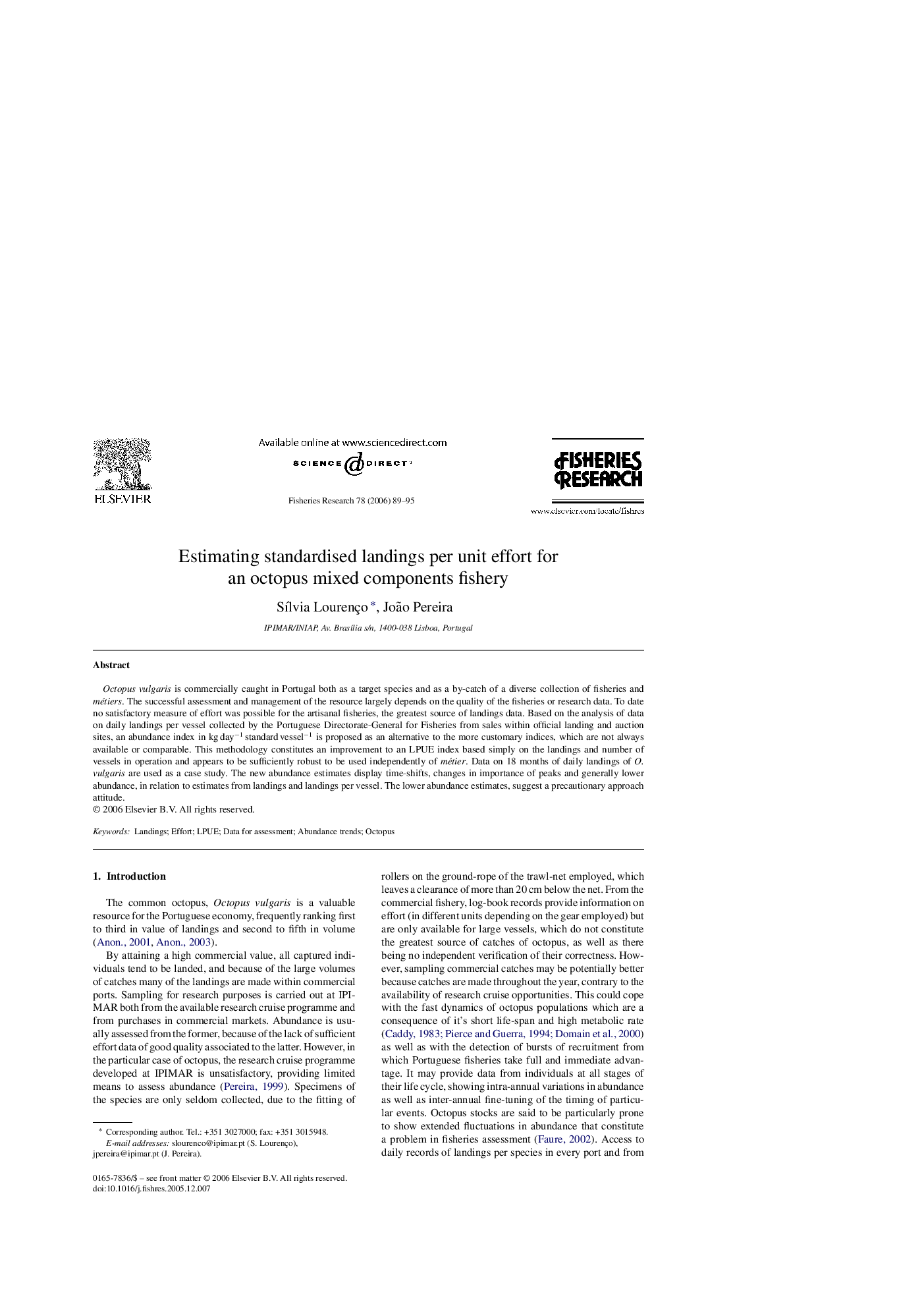| Article ID | Journal | Published Year | Pages | File Type |
|---|---|---|---|---|
| 4545007 | Fisheries Research | 2006 | 7 Pages |
Octopus vulgaris is commercially caught in Portugal both as a target species and as a by-catch of a diverse collection of fisheries and métiers. The successful assessment and management of the resource largely depends on the quality of the fisheries or research data. To date no satisfactory measure of effort was possible for the artisanal fisheries, the greatest source of landings data. Based on the analysis of data on daily landings per vessel collected by the Portuguese Directorate-General for Fisheries from sales within official landing and auction sites, an abundance index in kg day−1 standard vessel−1 is proposed as an alternative to the more customary indices, which are not always available or comparable. This methodology constitutes an improvement to an LPUE index based simply on the landings and number of vessels in operation and appears to be sufficiently robust to be used independently of métier. Data on 18 months of daily landings of O. vulgaris are used as a case study. The new abundance estimates display time-shifts, changes in importance of peaks and generally lower abundance, in relation to estimates from landings and landings per vessel. The lower abundance estimates, suggest a precautionary approach attitude.
